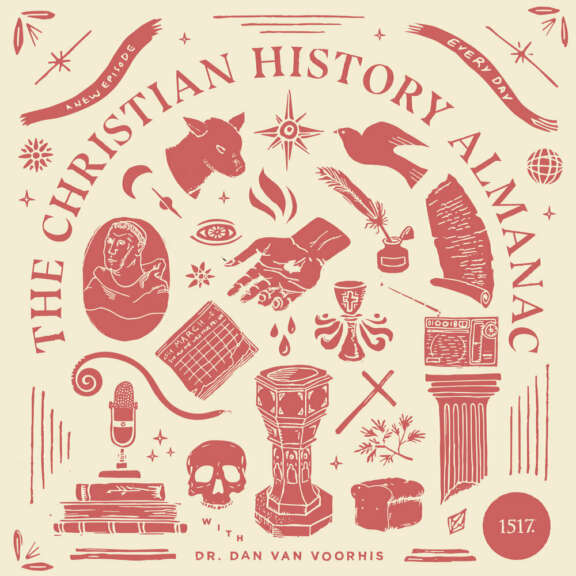The year was 1695. We remember the Reverend John Glas. The reading is "Sing Hosanna" by Glas.
Podcasts
Each 1517 Podcast is dedicated to delivering Christ-centered content through weekly, monthly, and seasonal audio platforms. Listen online or on your favorite podcasting app.
Author
- All Authors
- Aaron Zimmerman
- Adam Francisco
- Amy Mantravadi
- Blake Flattley
- Bob Hiller
- Bradley Gray
- Brian W. Thomas
- Bror Erickson
- Bruce Hillman
- Caleb Keith
- Chad Bird
- Chris Rosebrough
- Christopher Gillespie
- Cindy Koch
- Craig Donofrio
- Dan van Voorhis
- Daniel Deen
- Daniel Emery Price
- Darrin Sheek
- David Andersen
- David Rufner
- David Zahl
- Debi Winrich
- Delwyn Campbell
- Donavon Riley
- Doug Klembara
- Edward Killian
- Elyse Fitzpatrick
- Erick Sorensen
- Flame
- Grant Klembara
- Gretchen Ronnevik
- Haroldo Camacho
- Jacob Smith
- Jared C. Wilson
- Jeff Mallinson
- Jeffrey Pulse
- Jessica Thompson
- Jim Nestingen
- Joel Fitzpatrick
- Joel Hess
- John Andrew Schreiner
- John Bombaro
- John T. Pless
- John W. Hoyum
- John Warwick Montgomery
- Katie Koplin
- Kelsi Klembara
- Ken Sundet Jones
- Magnus Persson
- Matt Popovits
- Michael Berg
- Michael Horton
- Nick Lannon
- Paul Koch
- Peter Nafzger
- Philip Bartelt
- Raleigh Sadler
- RJ Grunewald
- Robert Kolb
- Rod Rosenbladt
- Ron Hodel
- Sam Leanza Ortiz
- Sarah Condon
- Sarah Crowder
- Scott Davis
- Scott Keith
- Steven Paulson
- Tanner Olson
- Troy Neujahr
- Uwe Siemon-Netto
- Wade Johnston
- William Cwirla
-
The Enemies at the Gate. We conclude our reading and discussion of C.S. Lewis’ speech on Learning in War-time. More reflection on the three enemies, excitement, frustration, and fear.
-
How many presidents does it take to make us question our confidence in this country? No problem, Jesus will be back soon! Just listen to the preachers tell it like it is, and everything will be ok.
-
The year was 1965, and Pope Paul VI became the first Pope to travel to the Western Hemisphere. The reading is from Karol Jozef Wojtyla, his “Meditations on the Book of Genesis: at the Threshold of the Sistine Chapel."
-
The year was 1943. We remember Danish Lutheran pastor Kjeldgaard Jensen. The reading is from Dietrich Bonhoeffer, his "Meditations on the Cross."
-
The year was 1800. We remember Nat Turner. The reading is from the Epistle of St. Paul to the Ephesians chapter three, verse twenty-five.
-
Know Your Enemy! C.S. Lewis explains why excitement, frustration, and fear can drive us to errs in judgment about ourselves, society, and God.
-
Forget prayer, America needs the use of logic and civilized discourse! So do preachers. What if preachers actually honestly engage the culture instead of cry “martyr”? Ringside meets The Craft of Preaching with special guest Dr. Ben Haupt.
-
The year was 1567. We remember a few stories filled with court intrigue, suspicion, and murder, as well as Pietro Carnesecchi, a humanist and would-be Reformer. The reading is “The World is not Conclusion” by Emily Dickinson.
-
In this episode, Blake sits down with designer and illustrator, Tim Bauer. They discuss the creative process, finding inspiration, and knowing the why behind creating.
-
The year was 1958. We remember the author Elsie Singmaster. The reading is from Frances Ellen Watkins Harper, “That Blessed Hope.”
-
The year was 1349. We remember the English hermit, mystic, and author Richard Rolle. The reading is from 19th-century poet James Montgomery, “Come To Calvary’s Holy Mountain.”


